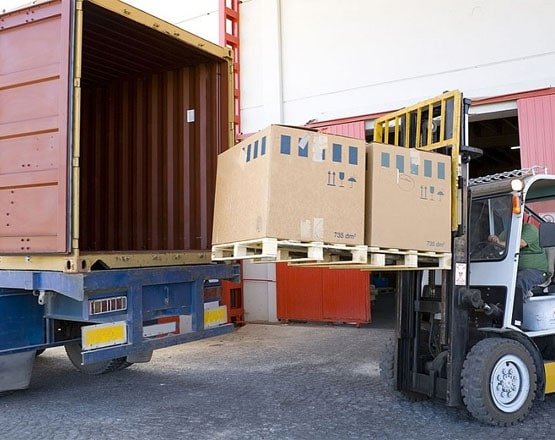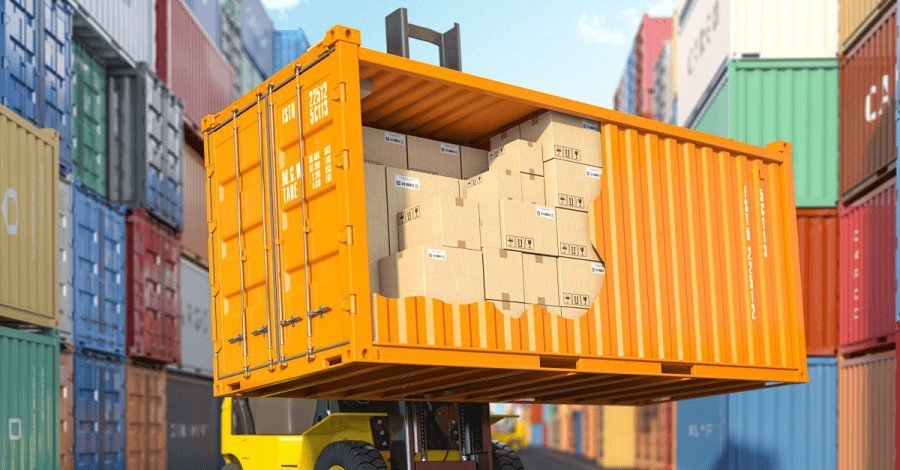Key takeaways
It is important for shippers seeking to obtain advantageous prices in the current competitive shipping market to comprehend the main takeaways related to LCL shipment. Shippers may negotiate with confidence and strategic insight if they understand the differences between LCL and FCL shipments and the advantages of cargo consolidation. Strong connections with freight forwarders provide you access to preferred pricing and expedited procedures, making them more than simply a technique. Shippers can save costs and obtain competitive rates by optimizing cargo consolidation through prior planning and utilizing negotiating strategies. Shippers may increase their negotiating strength and, eventually, the efficacy and efficiency of their LCL shipping operations by grasping these important lessons.

Introduction
In order to achieve competitive prices and successfully manage the difficulties of international trade, shippers must have a thorough awareness of the ins and outs of LCL shipping in today’s globalized world. Shippers may put themselves in a successful position in the constantly changing shipping business by understanding the fundamentals of cargo consolidation, developing trusting relationships with freight forwarders, refining consolidation plans, and using powerful bargaining tactics. Shippers may effectively handle discussions, get advantageous rates, and simplify their shipping processes for optimal efficiency and cost savings if they have a strong foundation of knowledge and strategic insight. Shippers may remain ahead of the curve and make well-informed decisions that suit their particular shipping demands and financial constraints by remaining proactive, knowledgeable, and adaptive.
Understanding LCL Shipping Basics
The key to negotiating advantageous prices for shippers is having a firm grasp of the fundamentals of LCL shipping. It’s important to lay the groundwork by differentiating between shipments that are FCL and LCL. Whereas FCL shipments give a shipper exclusive use of a container, LCL shipping entail numerous shippers sharing a container. Shippers may negotiate with confidence and strategic insight if they understand the nuances of LCL shipping, including the possible trade-offs between transit times and cargo risk, as well as the cost-saving advantages of cargo consolidation. With this information, shippers may make well-informed selections that suit their demands for shipping while staying within their means.
Furthermore, shippers wishing to obtain competitive rates must comprehend the notion of cargo consolidation in LCL shipping. carriers can save money by sharing container space when they combine merchandise from several carriers into a single container. It is important to take into account the trade-offs associated with cargo consolidation, including possible effects on transit times and the possibility of loss or damage during transit. Shippers can obtain advantageous prices for their LCL shipments by negotiating skillfully if they have a good awareness of these aspects.
Building Strong Relationships with Freight Forwarders LCL
Shippers aiming to obtain competitive prices for their LCL shipments might gain a strategic edge by cultivating strong connections with freight forwarders. These industry professionals are invaluable partners in negotiating the complexity of international shipping, not merely as facilitators of freight transfer. Shippers may take use of the plethora of information and services that freight forwarders provide by cultivating partnerships based on trust, dependability, and open communication.
Shippers may take use of the vast network of contacts that freight forwarders have built within the industry, in addition to their logistical knowledge. These connections may lead to favorable terms, priority processing, and expedited procedures, all of which save shippers money in the long run. By exhibiting a dedication to collaboration and partnership, shippers can position themselves as valuable clients that freight forwarders are eager to work with.
Furthermore, establishing trusting bonds with freight forwarders is more important than only negotiating advantageous prices. It establishes a foundation of respect and understanding between parties, which may result in long-term collaborations and ongoing enhancements to the efficacy and efficiency of LCL shipping operations. Shippers may increase the overall quality of their shipping experience and save money by collaborating closely with reliable freight forwarders.
Shippers should place a high priority on clear communication, prompt payments, and regular business in order to develop solid relationships with freight forwarders. Shippers may gain the respect and credibility of freight forwarders by being a consistent customer, and this can result in better terms and treatment. Furthermore, keeping channels of communication open and giving freight forwarders feedback can support the development of a cooperative and mutually beneficial partnership.
Optimizing Cargo Consolidation LCL
Shippers can use sophisticated planning and coordination techniques as one strategy to maximize cargo consolidation. Shippers may guarantee efficient and effective cargo consolidation by anticipating their transportation requirements and collaborating with suppliers and partners beforehand. In the end, this proactive strategy results in more competitive prices for LCL shipments by allowing for greater utilization of container capacity and lowering transportation expenses.
Shippers can also expedite the cargo consolidation process by utilizing automation tools and technologies. Shippers may find consolidation opportunities and optimize container space use by using digital solutions for inventory management, order tracking, and container optimization. Shippers may achieve considerable cost savings and increase the accuracy and effectiveness of their cargo consolidation initiatives by embracing technology. better negotiation outcomes with freight forwarders.
Organizing shipments ahead of time and combining freight from many sources or places is one strategy. Shippers can lower total transportation costs by organizing shipments and packing product into fewer containers. Optimizing the loading and packing of products is another strategy to make the most use of the available container space. Cargo may be stacked and secured more effectively to save space and reduce the possibility of damage occurring while in transportation.
Shippers may also think about combining their shipments with those of freight forwarders or other shippers. Shippers can benefit from economies of scale and better rates by grouping their goods together. Optimizing cargo consolidation may be a very useful tactic for obtaining advantageous rates, but it does involve careful planning and cooperation.
Leveraging Negotiation Techniques LCL
Shippers looking to obtain reasonable rates for LCL shipments need to possess effective negotiating abilities. Shippers may increase their negotiating strength and get what they want by learning different negotiation strategies. One important tactic is to obtain market data and carry out in-depth study prior to starting any talks. Shippers can negotiate better rates with freight forwarders if they are aware of market rates, industry trends, and rivals’ prices. Shippers should also be ready to explain their value proposition and distinctive selling characteristics in detail in order to support their claim that they should receive preferential rates.
Essential negotiating strategies also include being adaptable and willing to make concessions. Shippers that have a collaborative mentality and an open mind during negotiations are more likely to come to mutually beneficial agreements. Shippers may forge strong bonds with freight forwarders and obtain favorable pricing for their LCL shipments by looking for win-win solutions and being willing to compromise. Persistence is also essential in negotiations; shippers need to be ready to back out of agreements that don’t fit their needs in order to keep their power and push for better conditions.
In general, shippers may obtain reasonable prices for LCL shipments by developing their negotiating abilities, which is a significant instrument. Shippers may negotiate and get good outcomes that meet their budgetary constraints and transportation demands with confidence if they combine diligence, adaptability, and tenacity.
Performing in-depth study and obtaining market knowledge before to engaging in negotiations is one tactic. Shippers may gain significant influence in negotiations by being aware of industry trends, rival pricing, and current market rates. Additionally, shippers must be ready to explain to freight forwarders their value proposition and unique selling features in order to argue for preferential prices.
Another tactic is to be adaptable and prepared to make concessions. Give-and-take is a common part of negotiations, and shippers are more likely to succeed if they are willing to discover win-win solutions. It’s critical to enter into talks with a collaborative perspective and look for situations where both sides stand to gain.
Finally, shippers need to be tenacious and ready to give up if needed. Oftentimes, walking away from a contract that doesn’t satisfy their needs is the greatest bargaining strategy. Shippers can encourage freight forwarders to provide more competitive prices by exhibiting a willingness to investigate alternative possibilities.
Utilizing Technology for Rate Comparison LCL
Modern shipping technology has made it possible for shippers to use a multitude of internet platforms and applications that offer thorough quote comparison services. With the use of these tools, shippers can quickly evaluate quotes from various shipping companies, freight forwarders, and service providers, enabling them to decide wisely and bargain more skillfully for their LCL shipments.
Shippers may watch market trends, find cost-saving possibilities, and quickly and effectively acquire price information by using these digital solutions. Shippers may compare rates in-depth, examine pricing schemes, and identify the most appealing deals on the market thanks to this real-time data. With this information at their disposal, shippers may confidently initiate discussions since they are aware of the competitive environment and are well-equipped to secure favorable rates for their LCL shipments.
In addition, technology is essential for simplifying the actual negotiating process. Shippers may negotiate with freight forwarders from any location in the globe by using online communication tools including email, messaging applications, and video conferencing platforms. This degree of ease and connectedness not only makes communication easier, but it also makes decision-making quicker and deal-making more effective. Furthermore, shippers may maximize cost savings in their LCL shipping operations and improve their negotiating methods with the aid of digital systems that provide automated bidding and contract management functions.
In conclusion, shippers now approach obtaining competitive rates for LCL shipments in a whole new way thanks to the technological integration that has transformed rate comparison and negotiating procedures. Shippers may improve their ability to negotiate, increase cost efficiency, and ultimately obtain more positive results in their shipping activities by successfully utilizing these digital tools.
Shippers might benefit from software and web platforms that offer pricing comparison services. Shippers may make better informed judgments by using these tools to compare prices from various freight forwarders and shipping lines in an easy-to-use manner. Shippers may swiftly determine the market’s most competitive prices by utilizing technology, and they can then adjust their negotiations appropriately.
Technology may also speed up the negotiating process by making communication and document exchange easier. Shippers can engage with freight forwarders using email, messaging applications, or online collaboration platforms to discuss conditions and exchange pertinent information. This not only saves time but guarantees that all parties are in possession of the papers and conversations required for a fruitful negotiation.
Overall, shippers’ ability to get acceptable prices for LCL shipments may be greatly increased by using technology for pricing comparison and negotiation.
Conclusion
In summary, shippers seeking to acquire competitive rates for LCL shipments should prioritize improving cargo consolidation, using negotiating methods, and using technology for pricing comparison. Shippers may save expenses and optimize the use of container capacity by proactively organizing and coordinating shipments. Shippers may obtain beneficial outcomes by developing their negotiating abilities, doing in-depth research, and being adaptable and persistent during the negotiation process. Moreover, shippers may completely change how they approach obtaining competitive prices by using technology to compare rates and expedite the negotiating process. Shippers may improve their ability to negotiate, increase cost efficiency, and eventually obtain more favorable results in their shipping activities by adopting these tactics.

FAQ
How to negotiate shipping rates?
For shippers hoping to obtain competitive pricing for their LCL shipments, the ability to negotiate shipping rates is essential. Shippers can use a range of techniques and approaches to successfully negotiate shipping prices. Research is essential; knowing the going prices in the market, industry patterns, and pricing strategies of rivals may give you significant negotiating power. Shippers should also be ready to explain their value proposition and distinctive selling characteristics in detail in order to support their claim that they should receive preferential rates.
In negotiations, flexibility and a readiness to make concessions are also crucial. Shippers that have a collaborative mentality and an open mind during negotiations are more likely to come to mutually beneficial agreements. Building solid connections with freight forwarders and obtaining affordable rates for LCL shipments may be facilitated by looking for win-win solutions and being open to finding common ground. In order to preserve power and push for better terms, shippers must be willing to walk away from arrangements that do not match their standards. Persistence is also essential.
All things considered, settling on shipping rates involves a combination of diligence, adaptability, and perseverance. Shippers may negotiate with confidence and acquire results that meet their budgetary constraints and shipping demands if they have mastered these abilities.
How do you negotiate with shippers?
It is important to approach the negotiation process with shippers with a planned and proficient mindset. Performing in-depth research and obtaining market data before to engaging in negotiations is a crucial element. Gaining knowledge of industry trends, rivals’ prices, and current market rates gives you significant negotiating power when speaking with freight forwarders. Shippers should also be ready to explain their value proposition and distinctive selling characteristics in detail in order to support their claim that they should receive preferential rates.
Additionally important in negotiations with shippers are flexibility and a willingness to make concessions. The possibility of coming to a mutually beneficial agreement is increased when talks are approached with an open mind and a collaborative spirit. Strong connections with freight forwarders may be fostered by looking for win-win solutions and being open to finding common ground, which can assist secure competitive rates for LCL. shipping. Persistence is another important component; in order to keep their power and demand better terms, shippers should be prepared to withdraw from agreements that do not fit their needs.
All things considered, negotiating with shippers calls for a trifecta of diligence, adaptability, and tenacity. Shippers may negotiate with confidence and acquire results that meet their budgetary constraints and shipping demands if they have mastered these abilities.
How to negotiate ocean freight rates?
Shippers should approach negotiating ocean freight costs similarly to negotiating shipping prices in general. To have a firm grasp of the market landscape, extensive study on current market rates, industry trends, and rivals’ pricing is vital. Shippers might use this information to their advantage when negotiating with freight forwarders. Shippers should also be ready to explain their value proposition and distinctive selling characteristics in detail in order to support their claim that they should receive more favorable rates for their ocean freight shipments.
It’s also important to be adaptable and prepared to make concessions while negotiating maritime freight prices. Strong connections and better results can result from being open to creating win-win situations and mutually beneficial solutions with freight forwarders. Shippers should approach negotiations with a collaborative perspective in order to create a constructive discussion that can result in successful agreements.
Another crucial element in negotiating maritime freight prices is persistence. In order to retain power and demand better terms, shippers should be ready to walk away from transactions that don’t satisfy their needs. Shippers have the power to encourage freight forwarders to provide more affordable prices for their ocean freight shipments by exhibiting a readiness to consider other solutions.
In general, negotiating maritime freight costs calls for a trifecta of diligence, adaptability, and perseverance. Shippers may negotiate with confidence and obtain competitive prices for their ocean freight shipments by learning these strategies and abilities.
How to clear an LCL shipment?
Shippers must properly handle the customs clearance procedure while clearing an LCL cargo in order to guarantee a seamless and prompt delivery of their goods. Obtaining all required papers, such as the packing list, commercial invoice, bill of lading, and any other pertinent documents, is the first step. Ensuring the completeness and accuracy of all papers is imperative in order to prevent any issues or delays throughout the clearance procedure.
Shippers can collaborate with their freight forwarder or customs broker to submit the necessary documents to the customs authorities once everything is in order. After then, the customs officials will examine the paperwork, calculate any taxes or duties due, and decide whether more data or inspections are required. Shippers ought to be prepared to provide any requested information promptly to expedite the clearance process.
Customs officials may occasionally demand that the products be physically inspected in order to confirm their contents and guarantee that import laws are being followed. In order to schedule the inspection and make sure that all required parties are present, shippers should work with their freight forwarder or customs broker.
Shippers can make arrangements for the ultimate delivery of their products to their intended destination after the customs clearance process is finished. Shippers may guarantee a successful delivery of their goods and expedite the clearing of their LCL shipments by adhering to these guidelines and collaborating closely with their logistics partners.
Hope this article was helpful for more check out our previous blog post by clicking here

